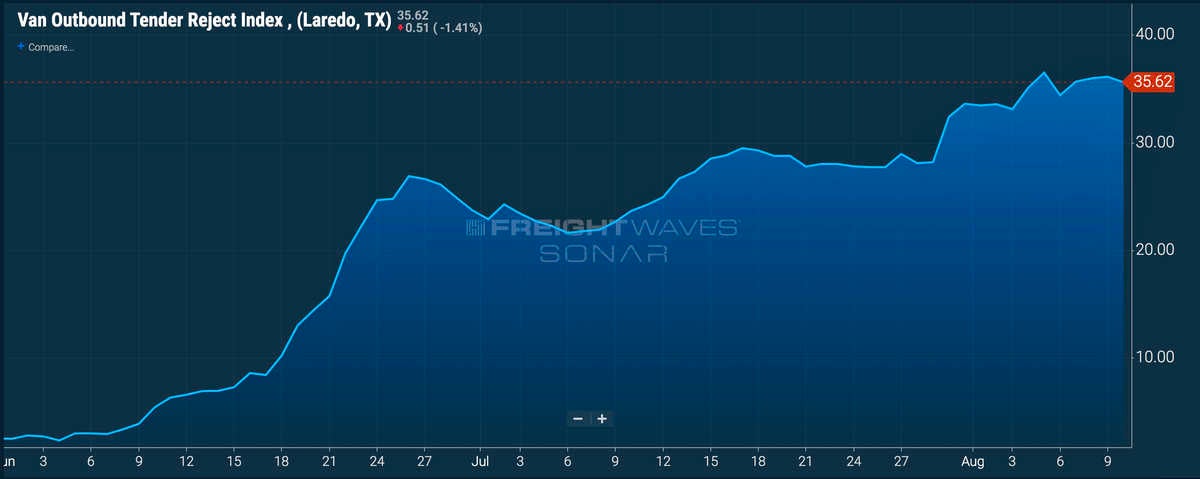Most ports across Texas saw steep declines in imports from Mexico and other countries as the coronavirus continues to impact international trade.
Trade at the Port of El Paso plunged 49%, from $39 billion to $20 billion through the first six months of 2020 when compared to the same period in 2019, according to WorldCity analysis of U.S. Census Bureau data.
Port Laredo’s trade fell 23% to $90 billion through the first six months of the year, while trade at the Port of Houston fell 20% to $64 billion.
Port Laredo ranked fourth for total trade among the nation’s roughly 450 airports, seaports and border crossings, according to WorldCity. The Port of Los Angeles ranked first.
The Port of Houston ranked sixth overall, and is the third-ranked seaport. The Port of El Paso is the 25th-ranked port.
Teclo Garcia, Laredo’s economic development director, said the drop in freight was caused by the closure of Mexico’s automotive production industry due to the pandemic.
“Despite the cataclysmic drop in cross-border freight, Port Laredo still ranks fourth nationally in overall trade the first six months of 2020,” Garcia said on LinkedIn.
The Mexican government suspended business, including all automotive factories, across the country March 30 to slow the spread of the coronavirus. Most auto factories restarted in June.
“The biggest impact to Port Laredo’s trade volume was auto content’s fall, both ways, for some $14 billion less as the U.S. and Mexico lines halted due to the pandemic,” Garcia said. “Auto content and new vehicle trade were each down about 40%.”
Mexico’s trade with the U.S. fell 21% through the first half of the year, but still ranked second in total trade value through June at $243 billion.
The imbalance of north- and southbound freight out of Mexico continues to tighten truck capacity along the U.S.-Mexico border. Laredo’s dry van rejection tender rate was more than 35% on Monday.

Other Texas ports of entry reporting trade declines the first half of the year were:
- Port of Port Arthur, 52%, down $5.12 billion.
- Port of Beaumont, 42%, $6.32 billion.
- Port of Eagle Pass, 21%, $11.8 billion.
- Dallas-Fort Worth International Airport, 18%, $23.69 billion.
- Pharr-Reynosa International Bridge, 15%, $15.48 billion.
- Brownsville International Bridge, 15%, $8.19 billion.
Across Texas, the import of computers, cell phones, medical equipment, steel wires and tubing, gasoline and other fuels, as well as oil, posted large declines for the first six months of the year.
The only Texas gateway to report an increase was the Port of Corpus Christi, going from $13.15 billion to $17.83 billion, a 36% gain. Exports accounted for almost $16 billion in trade at the port through the first half of the year, including gains in oil, liquefied natural gas and grain sorghum.
Click for more FreightWaves articles by Noi Mahoney.
More articles
FedEx Freight expanding cross-border operation in Laredo
Jockeying amid US-China trade tensions, Mexico eyes Asian investors







